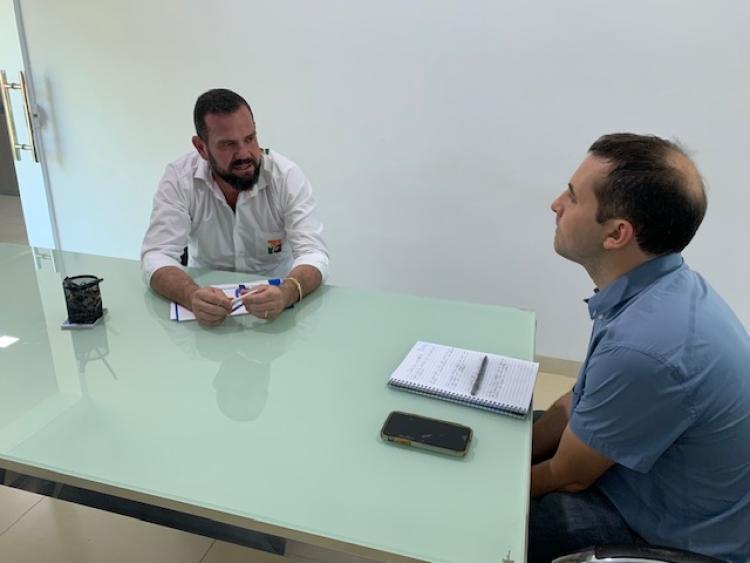When Sasha Chavkin came to the Ted Scripps Fellowship in 2021, he was interested in exploring how crime and corruption is fueling climate change. After constructing an independent study that included a rigorous amount of reading and research, Chavkin came to a conclusion: illegal deforestation is the largest contributor to climate change among criminal activities. In addition, Chavkin found that the majority of products obtained from illegal deforestation were going to China. “As of about five years ago, there was more deforestation embodied in international trade going to China than to the United States and European Union combined,” Chavkin said.
This led Chavkin to produce two articles. One covered PMI food systems, an American meat trader that primarily ships beef from Brazil to China and had links to illegal deforestation in its supply chain. The other was about a Chinese state-owned food importer, Cofco, and its link to illegal deforestation through soy and palm oil imports.
During his field reporting, Chavkin found that some sources had such a drastically different worldview that they didn’t bother trying to hide their role in illegal deforestation. One plantation owner who sold soy to Cofco was criminally deforesting, and Cofco continued to purchase soy from him. This violates the soy moratorium, which is a promise by companies to not buy soy from farmers that illegally clear forest. 
When Chavkin visited the plantation, he expected the owner to put up some resistance. “I was worried he was going to kick me off his property,” Chavkin said. “I just started talking to him and hadn't even brought up the question of the soy moratorium violation. I just asked him about Cofco, and he volunteered that he was working with Cofco. Like, ‘They're great. They're still buying from me, even though these other companies stopped buying from me because I violated the soybean moratorium.’” In the end, the plantation owner said he would only abide by Brazilian law, and the soy moratorium was separate from Brazilian law.
In some cases, such as the article about PMI Foods, Chavkin’s investigations pave the way for meaningful change. The article uncovers how an American meat trader that has shipped massive quantities of Brazilian beef to China has avoided scrutiny for enabling Amazon deforestation. After the story was published by the Associated Press, PMI Foods joined industry working groups on sustainability, promised to plant a million trees, and said it would consider a pledge against rainforest destruction.
“PMI admitted that it needed to change its practices,” Chavkin said “I don't think it has gotten very far in actually making those changes yet. But I think it was important to draw attention to PMI’s role, because it's a major American company that completely avoided scrutiny.”
Despite PMI dragging its feet, Chavkin’s goal in his reporting was clear from the start: He wants to hold companies accountable. “I want to make corporate practices better,” Chavkin said. “I want to help communities that are harmed by abuses and environmental harms. I think the way we do that is by putting the truth out there.”
*Photo credit: Giovanny Vera/Pulitzer Center
